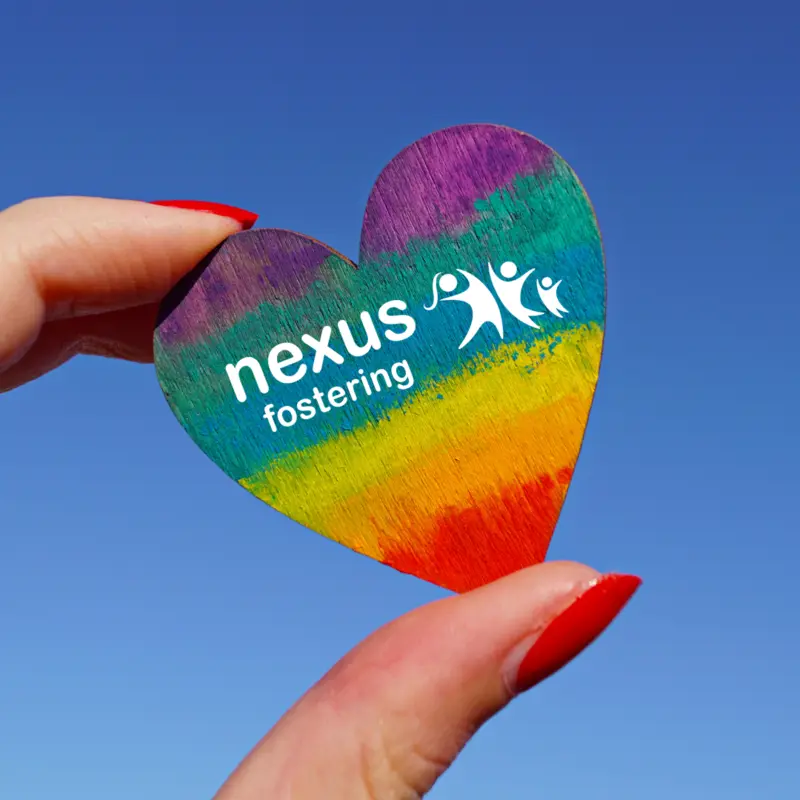Supporting young people during Pride month as a Foster Carer
Date published
19 June 2025
19 June 2025

June marks Pride Month — a time dedicated to affirming the dignity, visibility, and rights of LGBTQ+ people. While it includes parades and celebration, it is also a period of reflection, education, and solidarity. For many young people in care, particularly those who identify as LGBTQ+, this can be a deeply emotional time. Some may be working through trauma or past rejection, trying to make sense of their identity while seeking acceptance.
At Nexus Fostering, we know that for LGBTQ+ children and young people, a safe and understanding home environment can be life-changing. That’s why it’s so important that foster carers are equipped and confident to support those in their care.
Being a foster carer means offering safety, consistency, and compassion. During Pride Month, there are several ways to support young people who may be exploring their identity or already identify as LGBTQ+.
Allow space for open conversation. Young people may want to talk about their identity or may not feel ready. What matters is knowing they are heard, respected, and not pressured. Your presence and patience can be incredibly reassuring.
Understanding LGBTQ+ issues shows young people that their identity is respected. This includes learning about terminology, recognising discrimination or microaggressions, and becoming familiar with the mental health challenges LGBTQ+ young people may face. The more informed you are, the more helpful and affirming your support will be.
Using a young person’s chosen name and pronouns is essential. These small acts of recognition help to build trust, security, and a sense of self-worth. It tells them you see them for who they are.
Recognising Pride Month — even in simple ways — can make a significant difference. Whether it’s displaying a rainbow flag, attending local events together, or exploring books and films with LGBTQ+ representation, it reinforces the message that they belong.
Some young people may have faced rejection from their families or peers. As a foster carer, you can be a dependable source of care and safety. Making it clear that their identity does not affect your support for them is one of the most powerful things you can do.
We’re proud to stand beside our carers, providing ongoing training, guidance, and resources to help support every child, regardless of their background or identity. That includes fostering an inclusive environment where LGBTQ+ young people can thrive.
Whether you’re already fostering or thinking about becoming a carer, know that creating an affirming home doesn’t require perfection — just a willingness to learn, listen, and show consistent care.
To learn more about how we support carers and young people across the UK, please visit our support and training page or get in touch with your local team.
Pride Month is a reminder that every child deserves to feel seen, valued, and accepted. With the right support, foster carers can help make that possible.
Fostering insights
19 June 2025